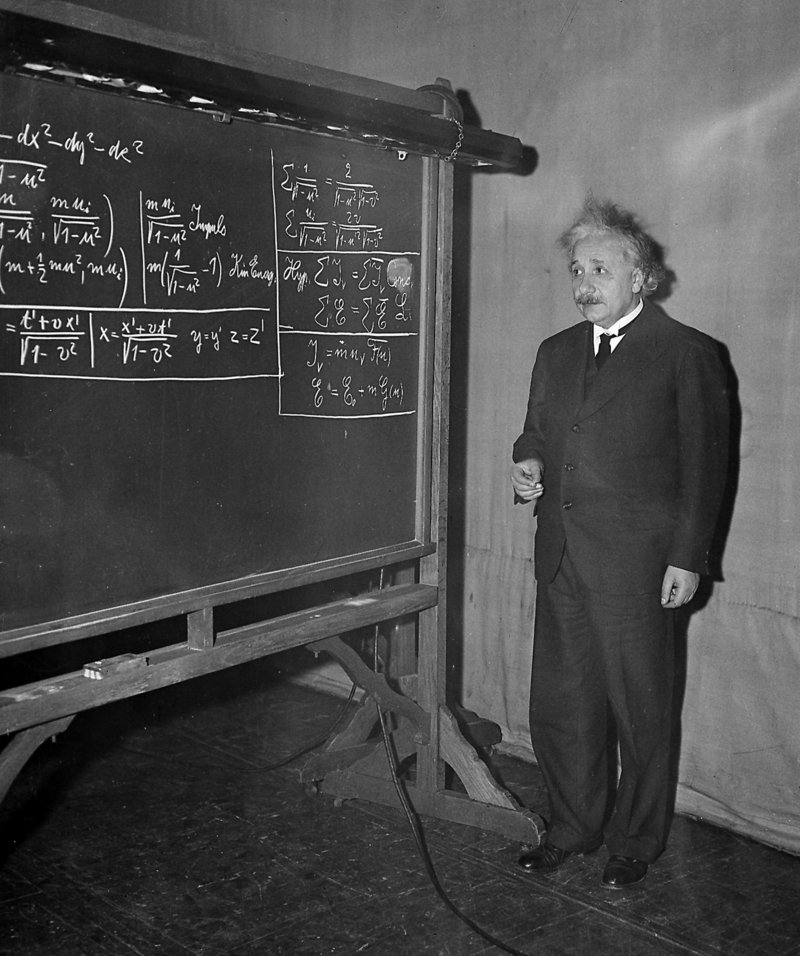In science, revolutions take time.
Eureka moments can stretch into noggin-scratching years.
And so, the day after news broke of a possible revolution in physics — particles moving faster than light, violating Albert Einstein’s ultimate speed limit — a scientist leading the European experiment that made the discovery calmly explained it to a standing-room-only crowd at CERN, the giant particle accelerator straddling the Swiss-French border.
The physicist, Dario Auterio, made no sweeping claims. He did not try to explain what the results might mean for the laws of physics, let alone the broader world.
After an hour of technical talk, he simply said: “Therefore we present to you today this discrepancy, this anomaly.”
But what an anomaly it may be. From 2009 through 2011, the massive OPERA detector buried in a mountain in Gran Sasso, Italy, recorded particles called neutrinos generated at CERN arriving a smidge too soon, faster than light can move in a vacuum. If the finding is confirmed by further experiments, it would throw more than a century of physics into chaos.
Clocking the neutrinos’ speed requires knowing two things: the distance of the journey, and how long it took.
Auterio detailed the extraordinary lengths his team took to make those two measurements. “We spent six months in various cross-checks,” he said of the team of 160 physicists from11 countries collaborating on the OPERA experiment, which is funded by the French and Italian governments.
Starting with GPS measurements, then upgrading the readings by sophisticated means, they measured the distance traveled — some 454 miles — to within eight inches. They factored in the rotation of the Earth, which moves ever so slightly in the flash it takes neutrinos to zoom to the detector. They even stopped traffic in a tunnel running through Gran Sasso mountain to calibrate their instruments.
An audience member asked whether the team accounted for the tugging of the moon on the Earth. “We took data continuously over three years, so this movement should average out,” Auterio said.
His explanations satisfied prominent spectators.
“I want to congratulate you on a beautiful experiment,” said Samuel C.C. Ting, the Nobel Prize-winning particle physicist from the Massachusetts Institute of Technology, who was sitting in the second row of the auditorium. “The experiment is very carefully done, the systematic error very carefully checked.”
About 15,000 viewers tuned into a webcast of the seminar, a huge audience for a deeply technical talk.
“My impression is they did all the reasonable cross-checks,” said one of those viewers, theoretical physicist Matt Strassler of Rutgers University. “They did a very serious job, it’s clear.”
Rob Plunkett, a scientist at Fermilab, the Department of Energy physics laboratory in Illinois, said, “There’s no question this is a result.” Translation: The finding holds up to initial scrutiny.
Still, some yet-unknown error could invalidate the results. “This is one of those ‘devil in the details’ things,” Plunkett said.
“If you had to bet, you’d bet on some experimental error,” said Lisa Randall, the prominent Harvard University physicist and author of the new book “Knocking on Heaven’s Door.” “There could be some error we don’t know about.”
Years of intense dissection — which OPERA and CERN scientists welcomed — will surely follow.
If neutrinos do travel a smidge faster than light, it might mean a rewrite, rather than a scrapping, of Einstein’s theories, Strassler said. “It would still be a big deal, but it might not be a ‘once in every three centuries’ thing.”
Still, physicists allowed that the finding could open the way to a new understanding of the universe. “There’s the chance that it’s a doorway into something fundamental and deep we don’t know about nature,” Strassler said. “All the great revolutions in science start with an unexpected discrepancy that wouldn’t go away.”
Send questions/comments to the editors.



Success. Please wait for the page to reload. If the page does not reload within 5 seconds, please refresh the page.
Enter your email and password to access comments.
Hi, to comment on stories you must . This profile is in addition to your subscription and website login.
Already have a commenting profile? .
Invalid username/password.
Please check your email to confirm and complete your registration.
Only subscribers are eligible to post comments. Please subscribe or login first for digital access. Here’s why.
Use the form below to reset your password. When you've submitted your account email, we will send an email with a reset code.